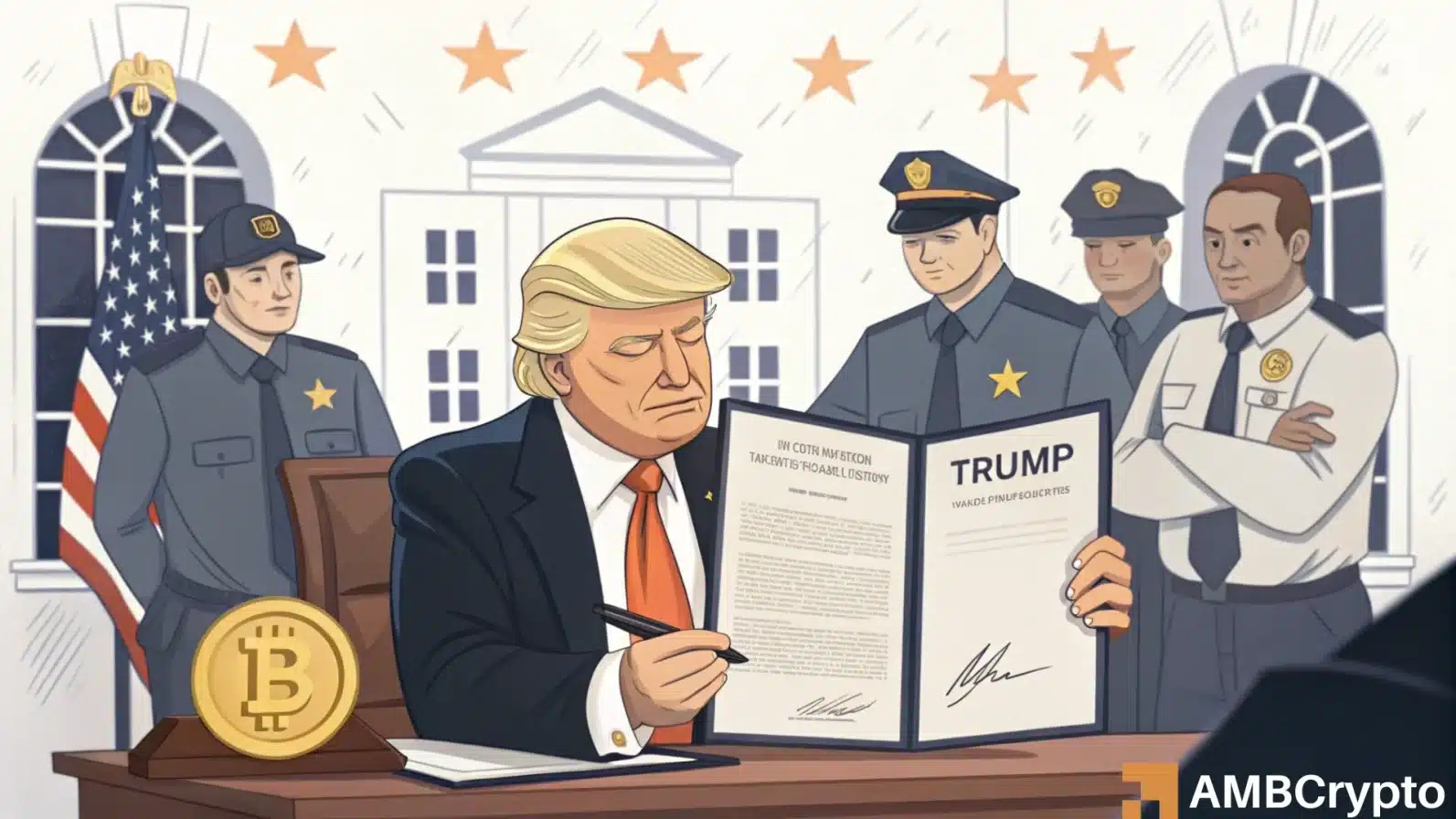Trump’s Crypto Executive Order: A Lifeline for Banking-Pariah Blockchain Firms?

Banks slammed the door. Regulators threw up roadblocks. Now, Trump’s order could force Wall Street to play ball with crypto—whether they like it or not.
The Debanking Dilemma
For years, crypto firms begged for mainstream banking access. Account closures, frozen wires, and ‘risk management’ excuses became routine. Even Binance’s $4.3B settlement didn’t ease the chill.
Executive Override
The order bypasses cautious bureaucrats, mandating FDIC-insured accounts for compliant exchanges. No more ‘Operation Choke Point’ reruns—if Treasury plays along.
Fine Print Fights
JPMorgan’s Jamie Dimon still calls Bitcoin ‘for criminals.’ But with 2024 election stakes, banks may grin and process those ‘dirty’ crypto wires—right after another round of ‘progressive’ ESG speeches.
The Bottom Line
Washington won’t kill crypto’s banking blues overnight. But when politicians smell votes—or donor checks—even Wall Street’s ‘principles’ have price tags.
Trump to sign an executive order against banks
According to The Wall Street Journal, the upcoming executive order WOULD bar banks from refusing services to digital asset firms based solely on their industry or perceived political leanings.
Trump’s Domestic Policy Council, led by Vince Haley, is expected to lead the drafting process. The order could have far-reaching consequences for crypto companies.
This MOVE follows growing pressure from conservative states, which allege that major U.S. banks have discriminated against sectors like cryptocurrency, firearms, and energy, not for financial reasons, but due to ideological bias.
In February, Democratic Senator Elizabeth Warren also called on the Donald TRUMP administration to investigate banks accused of denying services based on political affiliation or industry type.
She said,
“For me this is straightforward: It doesn’t matter who you voted for, what you believe in, or the origin of your last name, people shouldn’t be arbitrarily denied access to their banks, locked out of their accounts or stripped of their banking privileges.”
However, in response to the allegations, executives from JPMorgan Chase, Wells Fargo, and Citibank have already engaged in discussions with officials from Texas and Oklahoma to address the raised concerns.
Is this good news for the crypto industry?
The move is seen as a direct response to what many in the crypto industry call “Operation Chokepoint 2.0”, an alleged coordinated effort by the Joe Biden administration to cut off crypto firms from banking services.
During that time, at least 30 tech and crypto entrepreneurs were reportedly denied access to banking.
The sudden collapse of three crypto-friendly institutions—Silicon Valley Bank, Silvergate Bank, and Signature Bank — in March 2023 further fueled concerns of a systemic crackdown.
Now, with Trump back in office, federal officials appear poised to reverse course by introducing protections for digital asset businesses.
If enacted, the directive could restore crypto firms’ access to essential banking infrastructure and foster a more supportive environment.
It may also attract institutional investors by signaling a friendlier regulatory approach.
However, the proposal is expected to trigger legal and political debates over the extent to which the federal government can direct private banking practices.
What lies ahead?
Despite the Trump administration’s pro-crypto stance and regulatory rollbacks, concerns around crypto debanking are far from resolved.
Trump has pledged to end Operation Chokepoint 2.0 and ease SEC rules like SAB 121. Still, crypto firms remain uneasy, as banking access challenges continue to linger.
Interestingly, Federal Reserve Chair Jerome Powell recently affirmed that banks are allowed to serve crypto firms, as long as they comply with regulatory guidelines.
Powell said,
“Banks get to decide who their customers are and that’s not our decision. Banks are free to provide banking services to the crypto industry and crypto companies.”
While this offers cautious optimism, it’s not yet a complete solution.
Still, the alignment between Trump’s administration and the Fed signals a rare moment of shared direction on crypto policy.
Subscribe to our must read daily newsletter

